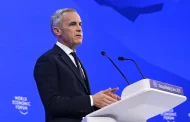A continent wide collaboration among institutions to combat organised crime is possible and needed in Africa, says Ambassador Emmanuel Obi Okafor, President of the Alumni Association of the National Institute (AANI). Organised crime is a global challenge which only a coordinated response from various stakeholders – security agencies, governments and the media – could checkmate, he told a two-day international symposium on countering organised crime in Africa at the Shehu Musa ‘Yaradua Centre, Abuja in Nigeria.
A statement by Brigadier-General Kukasheka, the National Publicity Secretary of the association quotes the AANI president as stressing the urgency of addressing the challenges posed by organised crime, citing issues within Nigeria and throughout Africa and arguing that the challenges of combatting organised crimes have often been exacerbated by weak institutions, a lack of collaboration, poor planning, inadequate management, insufficient accountability and inadequate involvement of stakeholders.
According to Ambassador Okafor, the outcomes are stunted economic growth, poverty, unemployment, and insecurity. The AANI President therefore stressed the necessity of developing a robust agenda aimed at establishing strong and resilient institutions and enhanced collaboration that can effectively counter organised crimes, provide remedies for victims, and ensure accountability, putting strong institutions as the bedrock of effective tackling of organised crime.
He singled out the Centre for Fiscal Transparency and Integrity Watch which organised the event, applauding the focus of the symposium on building relevant, resilient, and sustainable institutions to address this pressing issue. Disclosing AANI’s commitment to partnering with organizations like the Centre for Transparency and Integrity Watch and other NGOs to provide indigenous solutions to emerging developmental challenges such as organised crime in Africa, Okafor equally reiterated the call on all African countries to confront organised crime head-on, prioritizing long-term stability, inclusive development, poverty reduction, and governance enhancement.




























